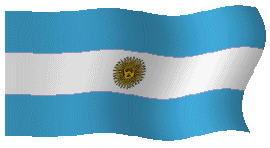
B"H
Jewish  Tours
Tours
 Buenos Aires, Argentina
Buenos Aires, Argentina
ARGENTINA, South American Federal Republic, general population (2004) 39,150,000; Jewish population 190,000.
The military coup d'état of 1930 introduced a period of political unrest in Argentina in which nationalist and antisemitic organizations played no small part. From 1933 on, nationalistic, xenophobic, and antisemitic activity increased, encouraged by German diplomatic institutions and by the local branch of the German Nazi Party, until it became a central problem for Argentinean Jewry. Also the Catholic Church, which was very close to the Vatican and Cardinal Pacelli (the future Pope *Pius XII), who visited Buenos Aires in 1934, was active in the dissemination of antisemitism. The leadership of the Church kept silent in its publications about the persecution and murder of the Jews in Europe. At the same time the lay Christians adopted an implicit or open antisemitic position in their periodicals and educational catechism material, and in lectures by their religious or lay leaders and teachers. The immigration decree of October 1938 increased discrimination against Jewish immigrants, and even Jewish farmers had great difficulty acquiring entry visas despite the preferential treatment for agricultural immigrants which even the drastic legislation on immigration provided. From 1933 to 1945 between 35,000 and 40,000 Jews entered Argentina by exploiting various loopholes in the law. About a third of them had to use illegal means to immigrate and their legal status was regulated only after a general amnesty was declared for illegal immigrants in 1948. When news of the Holocaust reached Argentina in 1943, Jewish organizations managed to convince the government to accept 1,000 Jewish children, but for various reasons, this rescue operation was never carried out.
The deteriorating security of Argentinean Jewry compelled all
factions, Ashkenazi and Sephardi, to unite and form a federate defense
organization. In 1933 they established the Committee Against the Persecutions of
the Jews in Germany, which after two years of activity became known as
*DAIA
– Delegación de Asociaciones Israelitas Argentinas. Initially
|
Visite nuestro sitio/Visit our home page: |